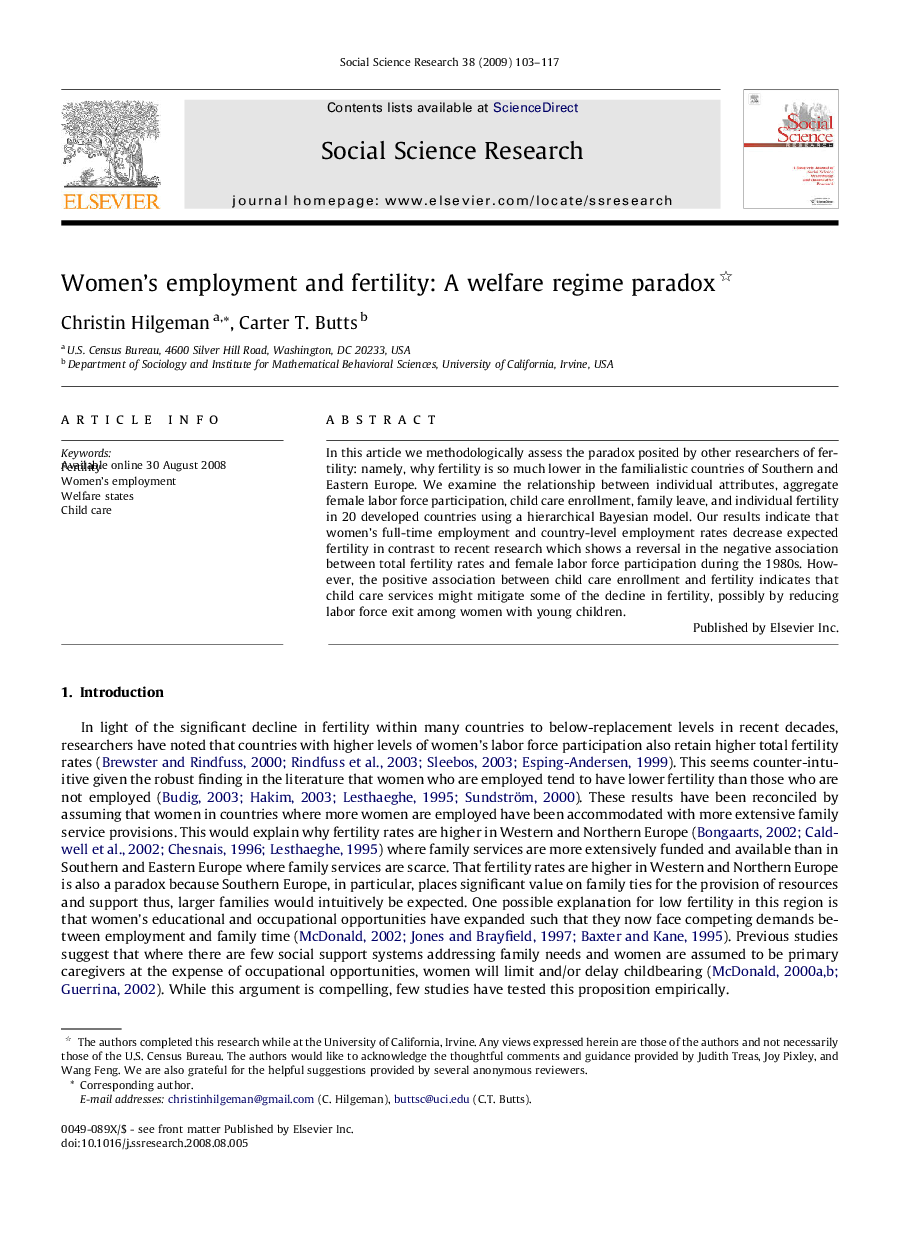| Article ID | Journal | Published Year | Pages | File Type |
|---|---|---|---|---|
| 956449 | Social Science Research | 2009 | 15 Pages |
In this article we methodologically assess the paradox posited by other researchers of fertility: namely, why fertility is so much lower in the familialistic countries of Southern and Eastern Europe. We examine the relationship between individual attributes, aggregate female labor force participation, child care enrollment, family leave, and individual fertility in 20 developed countries using a hierarchical Bayesian model. Our results indicate that women’s full-time employment and country-level employment rates decrease expected fertility in contrast to recent research which shows a reversal in the negative association between total fertility rates and female labor force participation during the 1980s. However, the positive association between child care enrollment and fertility indicates that child care services might mitigate some of the decline in fertility, possibly by reducing labor force exit among women with young children.
